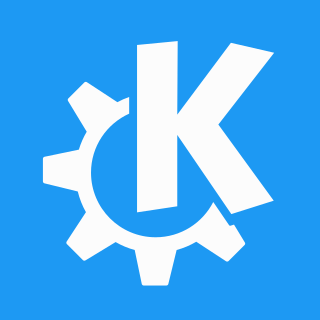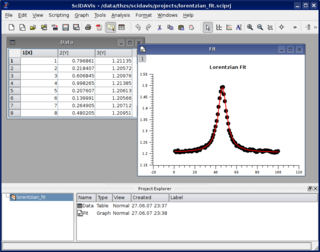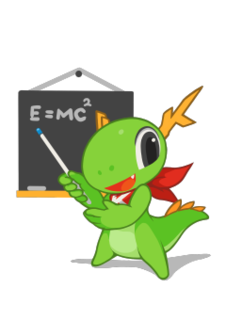
KDE is an international free software community that develops free and open-source software. As a central development hub, it provides tools and resources that allow collaborative work on this kind of software. Well-known products include the Plasma Desktop, Frameworks and a range of cross-platform applications like Krita or digiKam designed to run on Unix and Unix-like desktops, Microsoft Windows and Android.

The GNU Project is a free software, mass collaboration project that Richard Stallman announced on September 27, 1983. Its goal is to give computer users freedom and control in their use of their computers and computing devices by collaboratively developing and publishing software that gives everyone the rights to freely run the software, copy and distribute it, study it, and modify it. GNU software grants these rights in its license.

CUPS is a modular printing system for Unix-like computer operating systems which allows a computer to act as a print server. A computer running CUPS is a host that can accept print jobs from client computers, process them, and send them to the appropriate printer.

Scanner Access Now Easy (SANE) is an application programming interface (API) that provides standardized access to any raster image scanner hardware.

Amarok is a free and open-source music player. It is available for Unix-like, as well as for Windows and macOS systems. Although Amarok is part of the KDE project, it is released independently of the central KDE Software Compilation release cycle. Amarok is released under the terms of the GNU General Public License version 2.

Kontact is a personal information manager and groupware software suite developed by KDE. It supports calendars, contacts, notes, to-do lists, news, and email. It offers a number of inter-changeable graphical UIs all built on top of a common core.

Autodesk Softimage, or simply Softimage is a discontinued 3D computer graphics application, for producing 3D computer graphics, 3D modeling, and computer animation. Now owned by Autodesk and formerly titled Softimage|XSI, the software has been predominantly used in the film, video game, and advertising industries for creating computer generated characters, objects, and environments.

KDE Software Compilation 4 was the only series of the so-called KDE Software Compilation, first released in January 2008 and the last release being 4.14.3 released in November 2014. It was the follow-up to K Desktop Environment 3. Following KDE SC 4, the compilation was broken up into basic framework libraries, desktop environment and applications, which are termed KDE Frameworks 5, KDE Plasma 5 and KDE Applications, respectively.

KDE Plasma 4 was the fourth generation of the KDE workspace environments. It consisted of three workspaces, each targeting a certain platform: Plasma Desktop for traditional desktop PCs and notebooks, Plasma Netbook for netbooks, and Plasma Active for tablet PCs and similar devices.
NoLimits Roller Coaster Simulation is a software package available for Microsoft Windows and Mac OS X designed and built by a team of programmers and artists led by German programmer Ole Lange. It was first released in November 2001. The package includes two separate pieces of software, the NoLimits Editor and NoLimits Simulator, with a third application, the NoLimits Terraformer supported as well.

Dolphin is a free and open source file manager included in the KDE Applications bundle. Dolphin became the default file manager of KDE Plasma desktop environments in the fourth iteration, termed KDE Software Compilation 4. It can also be optionally installed on K Desktop Environment 3. It replaces Konqueror as the default file manager for KDE SC 4, but Konqueror can still be used as an alternative file manager.
Neuron is a simulation environment for modeling individual and networks of neurons. It was primarily developed by Michael Hines, John W. Moore, and Ted Carnevale at Yale and Duke.

SciDAVis is an open-source cross-platform computer program for interactive scientific graphing and data analysis. Development started in 2007 as fork of QtiPlot, which in turn is a clone of the proprietary program Origin.

The KDE Education Project develops free educational software based on the KDE technologies for students and parents. These educational software is translated into more than 65 languages, so that users can access them without any problems. The KDE-Edu project also provides free software educational to support and facilitate teachers in planning lessons.

Algodoo is a physics-based 2D sandbox freeware from Algoryx Simulation AB as the successor to the popular physics application Phun. It was released on September 1, 2009 and is presented as: a learning tool, an open ended computer game, an animation tool, and an engineering tool. The software is functional with: desktop and laptop computers, touch screen tablets, and interactive white board systems such as SMART Boards. The physics engine in Algodoo utilizes the SPOOK linear constraint solver by Claude Lacoursière and a modified version of Smoothed-Particle Hydrodynamics (SPH) computational method. This program has been used by many people including: educators, students, and children. Algodoo has remained as a popular choice from websites like List Of Freeware and Download Cloud for a physics sandbox program due to its complexity, simple GUI and free price.

Cantor is a free software mathematics application for scientific statistics and analysis. It is part of the KDE Software Compilation 4, and was introduced with the 4.4 release as part of the KDE Education Project's kdeedu package.

QBlade is an open-source, cross-platform simulation software for wind turbine blade design and aerodynamic simulation. It comes with a user-friendly graphical user interface (GUI) based on Qt.
AnimatLab is an open-source neuromechanical simulation tool that allows authors to easily build and test biomechanical models and the neural networks that control them to produce behaviors. Users can construct neural models of varied level of detail, 3D mechanical models of triangle meshes, and use muscles, motors, receptive fields, stretch sensors, and other transducers to interface the two systems. Experiments can be run in which various stimuli are applied and data is recorded, making it a useful tool for computational neuroscience. The software can also be used to model biomimetic robotic systems.

KAlgebra is a mathematical graph calculator included in the KDE education package. While it is based on the MathML content markup language, knowledge of MathML is not required for use. The calculator includes numerical, logical, symbolic, and analytical functions, and can plot the results onto a 2D or 3D graph. KAlgebra is free and open source software, licensed under the GNU Public License.

Parametric design is a process based on algorithmic thinking that enables the expression of parameters and rules that, together, define, encode and clarify the relationship between design intent and design response.













